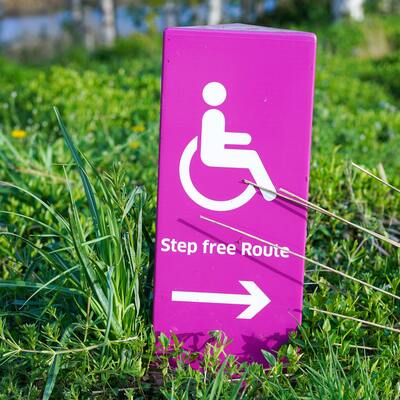International Day of People with Disabilities is an annual event that aims to recognise the challenges, barriers and opportunities for people who live with disabilities. In 2021, it is backed by a strong proposition; the fight for rights emerging in a post-Covid era.
This year, in the context of a global pandemic, the day will highlight that people who live with disabilities are among the most affected populations amid the health crisis, meaning that they are more likely to be negatively affected in terms of their mental health and psychological wellbeing.
Marginalisation, discrimination, vulnerability and exploitation can be every day factors for many people. Ever since Covid-19 rose to the fore, the risk of these poor outcomes has become more pronounced thanks to social isolation and reduced human interactions becoming the norm in previous months.
This became particularly prevalent in the world of work, as the shift was made to remote working and stringent lockdown restrictions took hold, while job uncertainties grew amid the introduction of the furlough scheme.
In fact, a 2020 study of 5,820 participants by medical journal The Lancet found an increased prevalence of depression, anxiety, and loneliness among this particular demographic.
However, people are increasingly returning to the office in what has been coined the “great return”, which presents a no doubt daunting prospect for those with disabilities and whose confidence has been rocked by the pandemic.
This is why we’ve provided advice around the steps employers can take to allay any concerns, while supporting inclusion and accessibility for employees with disabilities in order to reintroduce them to the workplace.
Implement diversity and inclusion (D&I) frameworks
D&I needs to be built into all reopening policies and procedures so that people can return to the office knowing that there are systems in place to guide them. Diversity across a workplace introduces fresh ideas and approaches to better problem solving, alongside boosting creative thinking.
Working in diverse teams opens dialogue and can resolve any unspoken issues, which is important as businesses aim to recover post-pandemic. This recovery is also vital to boost damaged morale and wellbeing among employees so that they have the confidence to succeed and thrive.
Invest in the right technology
It’s important to make sure that technology supports all employees and doesn’t only rely on visual or auditory elements. Assistive technologies, such as magnifying screen readers, auto captioning, live transcription, voice recognition technology, hearing loop systems and amplified phones can all be beneficial.
Modify working arrangements
Employees with neuro-divergent conditions, such as ADHD, autism and dyslexia can find bright lights and loud noises challenging. Consider providing natural lighting, noise cancelling headphones or a breakout room for them.
For those with physical or mobility difficulties, think about the best ways they can travel to the office. If public transport isn’t feasible, allow them to work flexible hours or from home and arrange regular check-ins so that they feel fully supported, regardless of where they’re located.
Introduce mentors
It’s helpful to have a supportive line manager or supervisor on hand who understands an individual’s personal challenges and can provide assistance. This will enable them to feel more comfortable asking for help and should give them access to learn new skills and advance on their career pathway.
Be accessible when recruiting
Ensure application forms and job descriptions are accessible by providing documents in large fonts or in easy to read versions. Place focus on essential job criteria, rather than preferred, so you don’t deter more than capable candidates from applying.
Think about what people with disabilities might need on the day of an interview, such as wheelchair accessibility, hearing loops or specific software to help them feel at ease and less likely to fall prey to nerves.
Provide support to managers
A manager who has never worked with someone with a disability might feel daunted at the prospect of how to sensitively treat them. Take the time to explain that they aren’t required to be experts, but that they should encourage open conversations with employees with disabilities to determine the level of support they require. This will enable managers to empathetically and confidently deal with these scenarios.
Offer all employees unconscious bias training
Employees who don’t have disabilities might be unaware of the support required by colleagues who have a disability. Training employees on the day-to-day difficulties people with disabilities might face can foster empathy and understanding. For example, you could consider a webinar which depicts what a typical working day looks like. Taking these steps can help to change attitudes and rid your team of any prejudices that might have existed previously.
If you would like to discuss this or any of the topics covered in our articles, please get in touch with our expert team.







